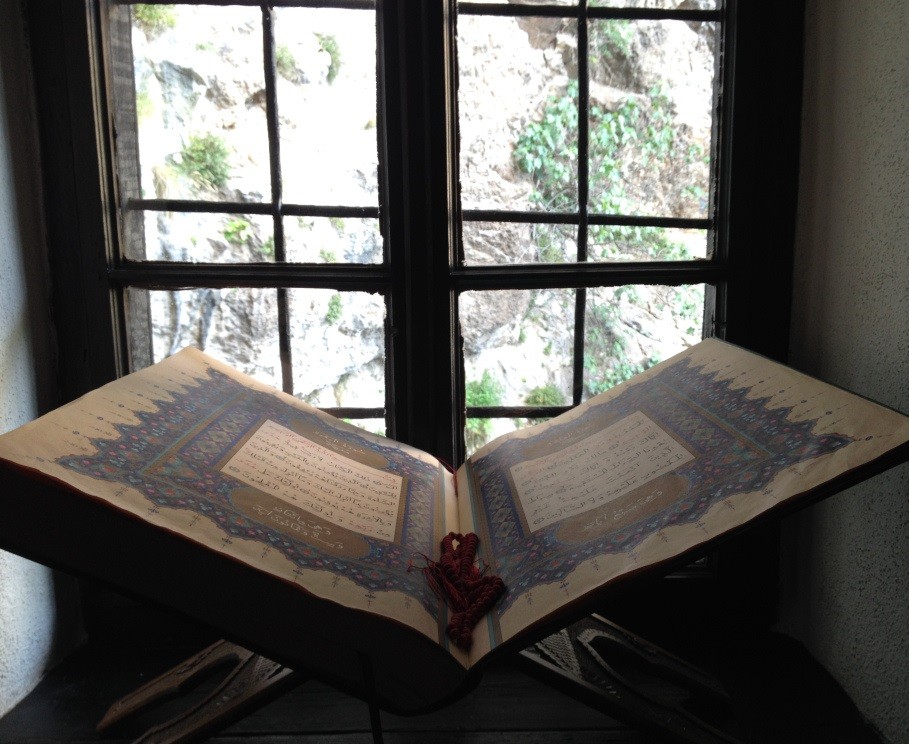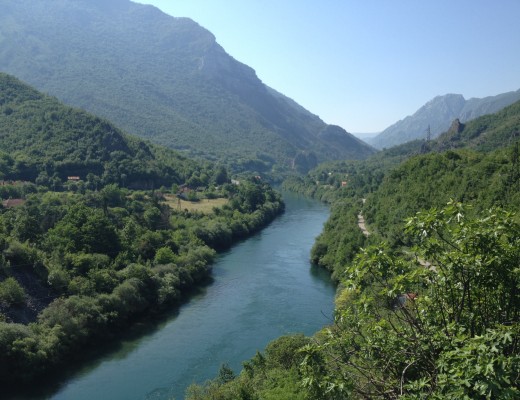وَلَقَدْ ضَرَبْنَا لِلنَّاسِ فِى هَـذَا الْقُرْءَانِ مِن كُلِّ مَثَلٍ
“…And indeed we have set forth for mankind, in this Qur’an every kind of parable…” (Qur’an 30:58)
The Qur’an is essentially a book of guidance for mankind. Many verses decreed by Allah encourage humans to “Reflect, use our vision” (Qur’an 59:2) and to “give thought to the creation of heaven and earth” (3:191). This encourages human intellectual, philosophical and spiritual reflection upon Allah and his creation.
Parables are used by Allah to give greater clarity and deeper meaning when explaining things to mankind. This method allows us to think, comprehend and ponder over the divine ayats (verses) in order to understand the message fully, and therefore increase our knowledge and embrace the truth wholeheartedly. Additionally, the parables really allow the reader to appreciate the absolute beauty and divine eloquence of the linguistics in the Qur’an.
The passages below are extracts from the book “Paragons of the Qur’an” and is a translation from one of the most prolific scholars of the last seven centuries – Imam Ibn Qayyim al-Jawziyyah. Below I have highlighted 2 explanations of parables taken directly from the book by al-Jawziyyah.
—
World Life and the Hereafter
“The example of [this] worldly life is but like rain which We have sent down from the sky that the plants of the earth absorb – [those] from which men and livestock eat – until, when the earth has taken on its adornment and is beautified and its people suppose that they have capability over it, there comes to it Our command by night or by day, and We make it as a harvest, as if it had not flourished yesterday. Thus do We explain in detail the signs for a people who give thought.” (Qur’an 10:24)
Allah draws a comparison of worldly life in that it appears beautified in the eye of the beholder to a point where we become inclined to it, desire it and become misled by it – until it reaches a stage where we think we possess it and have free reign over it, then, all of a sudden, it becomes snatched away from us when we believe we need it the most.
Allah compares this situation with the land on which rain falls causing it to sprout vegetation with perfect plants and its beauty attracts onlookers, deceiving us and making us think that we have power over it. The all of a sudden, Allah’s command comes down upon it, and disaster overtakes the vegetation, causing it to become nothing. This parable is to explain the condition of the world and the one who puts all his reliance on it.
Fire and Water
He sends down from the sky, rain, and valleys flow according to their measure, and the torrent carries a rising foam. And from that [ore] which they heat in the fire, making adornments and utensils, is a foam like it. Thus Allah presents [the example of] truth and falsehood. As for the foam, it vanishes, [being] passed away; but as for that which benefits the people, it remains on the earth. Thus does Allah present examples. (Qur’an 13:17)
In this ayat, Allah says that his Revelations brought life to the hearts and compares this to water that also brings life to the earth with plants. The comparison is between the ‘hearts’ and the ‘valleys’ since a large heart can accommodate a great amount of knowledge just as a large valley can accommodate water. As for a small heart, it can only accommodate according to its size just like a small valley.
When guidance and knowledge come in contact with the heart, the presence of desires and doubts become disturbed and the heart rids of these harmful elements, similarly when the flow of water comes in contact with earth, it picks up scum and foam and these impurities are cast aside. “And from that [ore] which they heat in the fire, making adornments and utensils, is a foam like it.” This example of the fire is to also say that when finding gold or silver, dirt is also picked up from the earth and fire is used to separate the valuable metal from the filth, casting off the harmful objects.
—
There are endless examples of parables within the Qut’an which typically use analogies of the natural world to reflect a moral lesson. A literal understanding of these verses would not allow the reader to grasp the deeper and meaningful explanations intended. I have seen many literal explanations of these verses, an example is when some of have misunderstood “lightness” and “darkness” as racial terminologies which is detrimental to the Qur’an and Muslims since the only race Islam acknowledges is the human race. “Lightness” of course refers to qualities of illumination and in contrast “darkness” would refer to someone being spiritually dead.
The parables are divine gifts from Allah that will help our minds to blossom in order to recognize true guidance.
The extracts highlighted were taken directly from Paragons of the Qur’an by Imam ibn Qayyim al-Jawziyyah.




1 Comment
RMAU
June 4, 2016 at 12:52 amSince most Muslims do not ascribe to this group that labels the Quran and Muhammad with the number 666, could this Islamic